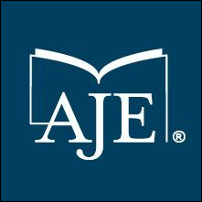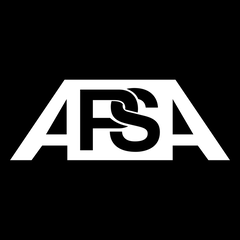The Malaysian Trust School Program: A Public-Private Partnership (PPP)?
DOI:
https://doi.org/10.64423/arpa.v30i1&2.54Keywords:
Public-Private Partnership, Corporate Social Responsibility, Trust School, MalaysiaAbstract
Public-private partnership (PPP) has been utilized by many countries as a default solution for infrastr ucture projects. Recently, the application of the PPP concept toward enhancing education quality is witnessed in emerging markets. While the traditional PPP structure is based on a unique relationship between the government and public firms, several various PPP structures have been in practice to deliver goods or services to the general public . In this research, we explore the Trust School initiative undertaken by the Malaysian Ministry of Education (MOE) using a PPP structure by collaborating with Yayasan Amir (a foundation set up by Khazanah, a sovereign wealth fund of the Gove rnm ent of Malays ia). This study adopts a descriptive research framework and uses secondary data in the form of a government report, annual report, and published articles, to critically assess the nature of the PPP relationship between the Ministry of Education (MOE) and Yayas an Amir. A comparative analys is between the trad itional PPP structure and th e PPP structure adopted for the Trust School initiativ e reveals that the Trust School initiative appears to be a Corporate Social Respons ibility (CSR) project of Khazanah. Findings provided by this study are expected to clarify the accountability relationships among the stakeholders of the Trust School initiative and could allow policymakers to reform strategies relating to resource allocation for the future Trust schools in Malaysia.References
Behrendt, S. (2009). An Update on Arab Sovereign Wealth Funds, in S. Behrendt and B. Kodmani (eds.) Managing Arab Sovereign Wealth in Turbulent Times—and Beyond. Washington, DC: Carnegie Endowment for International Peace.
Brikerhoff, J.M. (2002). Government-Nonprofit Partnership: A Defining Framework. Public Administration and Development, 22, 19-30.
Buxbaum, J. N. & Ortiz. I.N. (2007). Protecting the Public Interest: The Role of Long-Term Concession Agreements for Providing Transportation Infrastructure. Los Angeles: University of Southern California, Keston Institute for Public Finance and Infrastructure Policy.
Carroll, A.B. & Shabana, K.M. (2010). The Business Case for Corporate Social Responsibility: A Review of Con cepts, Research an d Practice. International Journal of Management Reviews, 12(1), pp.85-105.
Devi, V. (2018). Trust schools to enhance Malaysian education internationally. Available at: https://www.thestar.com.my/metro/metro-news/2018/05/17/trust-schools-to- enhance-malaysian-education-internationally/#tcrtzxte1vwtPmwJ.99.
Dicke, L. A., Ott, J.S (1999). Public Agency Accountability in Human Services Contracting. Public Productivity and Management Review 22(4): 502–16.
Forrer, J., Kee, J.E., Newcomer, K.E., & Boyer, E. (2010). Public-Private Partnerships and the Public Accountability Question. Public Administration Review, May/June, 475-84.
Friedman, M. (1962). The social responsibility of business is to increase its profits. New York Times, September, 126.
Ghere, R. K. (2001). Probing the Strategic Intricacies of Public-Private Partnership: The Patent as a Comparative Reference. Public Administration Review 61(4), 441–51.
Grimsey, D., Mervyn K. L. (2004). Public-Private Partnerships: The Worldwide Revolution in Infrastructure Provision and Project Finance. Cheltenham, UK: Edward Elgar.
Guttman, D. (2000). Public Purpose and Private Service: The Twentieth Century Culture of Contracting Out and the Evolving Law of Diffused Sovereignty. Administrative Law Review 52(3), 861–923.
Hamilton, A. (2014). The Malaysian Trust School Model: It’s good but is it sustainable? Policy Ideas No. 11, Institute for Democracy and Economic Affairs.
Kee, J. E., K. E. Newcomer, D. L. Trent, V. Oster, and S. Rosen. (2007). Keeping the Public Interest in Public-Private Partnerships. Working Paper no. 5, Centre for Innovation in Public Service, George Washington University.
Kettl, D. F. (2002). Managing Indirect Government. In Salamon, L.E. (ed.). The Tools of Government: A Guide to the New Governance, 490–510. New York: Oxford University Press.
Light, P. C. (1993). Monitoring Government: Inspectors General and the Search for Accountability. Washington, DC: Brookings Institution.
Mayberry, K. (2015). Malaysian Trust Schools: A New Educational Approach. JCI Working Paper No.1. Available at: http://jci.edu.my/wp-content/uploads/2018/05/JCI- WP1.pdf.
OECD (2012). PISA 2012 Results in Focus: What 15-year-olds know and what they can do with what they know. Paris: OECD.
Patrinos, H.A., Barrera-Osorio, F., & Guáqueta, J. (2009). The role and impact of public- private partnerships in education. Washington D.C.: World Bank.
Posner, P. L. (2002). Accountability Challenges of Third-Party Government. In Salamon, L. M. (ed.). The Tools of Government: A Guide to the New Governance (pp.523–51), New York: Oxford University Press.
Sclar, E. D. (2000). You Don’t Always Get What You Pay For: The Economics of Privatization. Ithaca, NY: Cornell University Press.
Siddiquee, N.A. (2006). Paradoxes of Public Accountability in Malaysia: Control Mechanisms and their limitations. International Public Management Review, 7(2), 43-64.
Tennyson, Ros. (2003). The Partnering Toolbook. London: International Business Leaders Forum. https://www.energizeinc.com/sites/default/files/ThePartneringToolbookMarch2004.pdf [accessed February 12, 2019].
Wan Jan, W.S. (2014). Ramp up the Trust Schools. Available at: https://www.thestar.com.my/opinion/columnists/thinking-liberally/2014/03/04/ramp-up-the-trust-schools.
Wettenhall, R. (2003). The Rhetoric and Reality of Public-Private Partnerships. Public Organization Review, 3(1): 77–107.
Yayasan Amir (2017). Yayasan Amir Trust School Programme Annual Progress Report 2016. Yayasan Amir, Kuala Lumpur.
Yescombe, E. R. (2007). Public-Private Partnerships: Principles of Policy and Finance. Burlington, MA: Butterworth-Heinemann/Elsevier.
Downloads
Published
Issue
Section
License
Copyright (c) 2025 ASIAN REVIEW OF PUBLIC ADMINISTRATION (ARPA)

This work is licensed under a Creative Commons Attribution-ShareAlike 4.0 International License.












